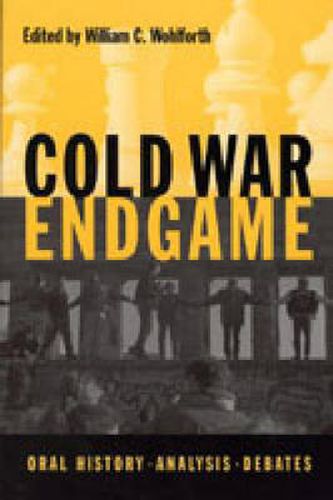Readings Newsletter
Become a Readings Member to make your shopping experience even easier.
Sign in or sign up for free!
You’re not far away from qualifying for FREE standard shipping within Australia
You’ve qualified for FREE standard shipping within Australia
The cart is loading…






Cold War Endgame is the product of an unusual collaborative effort by policymakers and scholars to promote better understanding of how the Cold War ended. It includes the transcript of a conference, hosted by former Secretary of State James Baker and former Soviet Foreign Minister Alexander Bessmertnykh, in which high-level veterans of the Bush and Gorbachev governments shared their recollections and interpretations of the crucial events of 1989-91: the revolutions in Eastern Europe; the reunification of Germany; the Persian Gulf War; the August 1991 coup; and the collapse of the USSR. Taking this testimony as a common reference and drawing on the most recent evidence available, six chapters follow in which historians and political scientists explore the historical and theoretical puzzles presented by this extraordinary transition. This discussion features a debate over the relative importance of ideas, personality, and economic pressures in explaining the Cold War’s end.
$9.00 standard shipping within Australia
FREE standard shipping within Australia for orders over $100.00
Express & International shipping calculated at checkout
Cold War Endgame is the product of an unusual collaborative effort by policymakers and scholars to promote better understanding of how the Cold War ended. It includes the transcript of a conference, hosted by former Secretary of State James Baker and former Soviet Foreign Minister Alexander Bessmertnykh, in which high-level veterans of the Bush and Gorbachev governments shared their recollections and interpretations of the crucial events of 1989-91: the revolutions in Eastern Europe; the reunification of Germany; the Persian Gulf War; the August 1991 coup; and the collapse of the USSR. Taking this testimony as a common reference and drawing on the most recent evidence available, six chapters follow in which historians and political scientists explore the historical and theoretical puzzles presented by this extraordinary transition. This discussion features a debate over the relative importance of ideas, personality, and economic pressures in explaining the Cold War’s end.